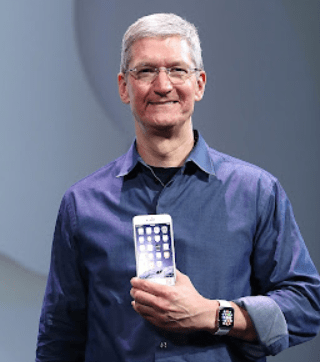The underwhelming release of the iPhone 15 paired with an increasing shift in consumer patterns has raised questions about its prominence on the global market.

Apple, a longtime symbol of smartphone prestige and innovation, now faces doubts about its popularity due to recent events. In August, Apple issued a forecast, indicating a prolonged sales decline, raising uncertainty about the future of its flagship product, the iPhone.
Apple’s Rare Sales Decline
Despite its reputation for innovation and market dominance, Apple recently experienced an unusual sales slump. During the fiscal third quarter, Apple exceeded Wall Street’s sales and profit expectations. However, it alarmed investors and industry observers by projecting a fourth consecutive quarter of declining sales, with revenue falling 1% to $81.8 billion.
iPhone 15 Release
The release of the highly anticipated iPhone 15 amplified these concerns. Historically, Apple product launches were grand spectacles with long queues and enthusiastic crowds. However, the iPhone 15’s launch was not as extravagant, leading to doubts about whether it lived up to the hype.
The iPhone 15 introduced various enhancements like improved cameras, faster processors, and better battery life. Still, critics argued these upgrades were incremental rather than groundbreaking, putting Apple behind competitors known for pushing innovation boundaries.
Changing Consumer Behavior
Beyond the iPhone 15, a broader trend is evident. Consumer behavior is shifting, with people holding onto their phones longer and questioning the value of pricey upgrades. As premium flagship models surpass $1,000, budget-friendly and mid-range smartphones from competitors gain traction.

Apple’s Response
Apple has responded strategically to these challenges by shifting focus to its services and subscriptions business. Services like Apple Music, Apple TV+, and Apple Arcade offer a broader digital content ecosystem. This diversification aims to offset declining hardware sales.
Additionally, Apple invests in research and development, exploring areas like augmented reality and autonomous vehicles. These endeavors underscore the company’s commitment to innovation.
Apple CEO Tim Cook touted the company’s services revenue, which hit a record-breaking $21.2 billion, in the same earnings report.
“We are happy to report that we had an all-time revenue record in Services during the June quarter, driven by over 1 billion paid subscriptions, and we saw continued strength in emerging markets thanks to robust sales of iPhone,” he said.
The Future of iPhones
Despite recent concerns and questions, Apple has a history of adapting to changing markets and consumer preferences. The tech giant has shown resilience and adaptability in the past.
The ultimate test for the iPhone will be its ability to remain relevant and appealing in a fast-evolving tech landscape. With the company’s resources, brand loyalty, and commitment to innovation, it’s too early to write off the iPhone entirely. Apple has faced challenges before and emerged stronger.
Ultimately, the recent struggles faced by Apple in the wake of the iPhone 15 release raise questions about the iconic device’s popularity and its ability to maintain its market dominance. The evolving consumer landscape, shifting behaviours, and increased competition are challenging the once-unassailable position of the iPhone. However, with a focus on services and a commitment to innovation, Apple remains a formidable player in the tech industry. Only time will tell whether the iPhone can adapt and continue to capture the imaginations of consumers around the world.

